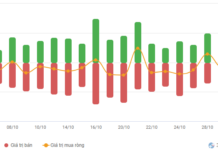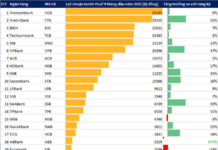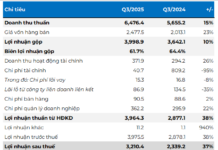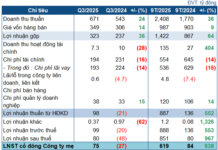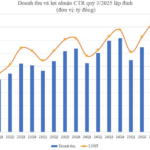Businesses are not allowed to cut other wage benefits for employees
According to Clause 3, Article 5 of Decree 74/2024/ND-CP, the government has regulations regarding salary payments for highly skilled employees, stipulating that jobs or positions requiring advanced training or education should be paid at least 7% above the minimum wage. This regulation will continue to be implemented unless otherwise agreed upon by both parties.
Notably, the decree also states that businesses must not eliminate or reduce other wage benefits for employees, such as overtime pay, night shift allowances, and benefits in kind.

If previous employment contracts, collective labor agreements, regulations, or other documents mentioned that the business provides a wage regime that is at least 7% higher, this should continue to be implemented.
This means that if, prior to this decree, there were agreements or mentions in employment contracts, collective labor agreements, regulations, or other documents stating that employees would receive a wage regime that is at least 7% higher than the minimum wage, those agreements will continue to be honored unless otherwise agreed upon.
Previously, Article 5 of Decree 90/2019/ND-CP stipulated that jobs requiring training included those where employees had qualifications or training such as:
– Holding a vocational certificate, a degree in a specialized field, a college degree, a certificate in foundational studies, or a bachelor’s, master’s, or doctoral degree…
– Holding a master’s or doctoral degree or a certificate in vocational education…
– Holding a degree from a university or college…
According to these provisions, for employees who signed contracts before July 1, 2024, and had agreements in place for wages at least 7% higher than the minimum wage, those agreements will continue to be honored as previously committed to, unless otherwise agreed upon.
For employment contracts signed from July 1, 2024, onwards, the decree does not mandate that wages for highly skilled employees must be at least 7% higher than the regional minimum wage. However, wages must still meet the regional minimum wage standards as specified in the decree:
|
Region |
Minimum Monthly Wage (VND/month) |
Minimum Hourly Wage (VND/hour) |
|
Region I |
4,960,000 |
23,800 |
|
Region II |
4,410,000 |
21,200 |
|
Region III |
3,860,000 |
18,600 |
|
Region IV |
3,450,000 |
16,600 |
Removal of regulations regarding social insurance contributions based on trained labor wages
Previously, from July 1, 2022, Decree 38/2022/ND-CP did not include regulations regarding a minimum wage that is at least 7% higher for employees in jobs requiring vocational training or education, as stipulated in Point b, Clause 1, Article 5 of Decree 90/2019/ND-CP (which is no longer in effect).

For employment contracts signed from July 1, 2024, onwards, the decree does not mandate that wages for highly skilled employees must be at least 7% higher than the regional minimum wage.
To align with this change, on June 5, 2023, the Social Insurance Agency issued Decision 948/QD-BHXH, which revoked the following regulations:
– The monthly salary for compulsory social insurance contributions specified in this Clause must not be lower than the regional minimum wage at the time of contribution for employees performing the simplest jobs under normal working conditions.
– Employees performing jobs or holding positions that require training or vocational education (including those trained by the enterprise itself) must have a salary that is at least 7% higher than the regional minimum wage.
By revoking these regulations, the Social Insurance Agency has harmonized the rules regarding compulsory social insurance contributions for employees who have undergone vocational training or education, aligning them with Decree 38/2022/ND-CP (at that time) and Decree 74/2024/ND-CP (effective from July 1, 2024, onwards).
Official submission of the Government’s minimum wage increase effective from July 1st
The National Wage Council has officially recommended to the Government to consider adjusting the regional minimum wage increase in 2024, starting from July 1st.
Increase Your Salary without Inflated Prices
Starting from 1st July, wage policies have been adjusted to increase the income for workers. However, wage increases are only truly meaningful when the state can effectively control inflation and prevent prices from skyrocketing.


